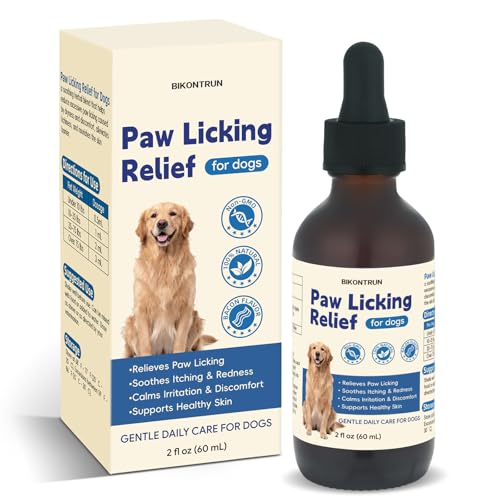The Importance of Feline Grooming Habits
You may have noticed that your cat spends a significant amount of time grooming themselves. It’s not just a random habit though – feline grooming is an essential part of their daily routine. Here’s why it’s so important:
- Maintaining hygiene: Cats are naturally clean animals, and grooming helps them keep their fur clean and free from dirt and parasites. When they lick their paws and then wipe their face, they are removing any debris or dirt that may have accumulated.
- Temperature regulation: Grooming also plays a crucial role in regulating your cat’s body temperature. When they lick their fur, the saliva helps to cool them down in hot weather and keep them warm in colder temperatures. Additionally, the act of grooming helps to redistribute the natural oils in their fur, which helps to insulate their body.
- Social bonding: Cats are extremely sociable animals, and grooming is a way for them to maintain social bonds. When cats groom each other, it’s a way of showing affection and trust. So, when your cat is grooming themselves, they are not only taking care of their own hygiene but also reinforcing their bond with you and other cats in your household.
- Stress reduction: Grooming is also a self-soothing behavior for cats. It helps them relax and reduces stress levels. So, if you notice that your cat is grooming themselves more frequently during certain situations, it may be a sign that they are feeling anxious or stressed.
Remember, grooming is an instinctive behavior for cats, and it serves several important purposes. It’s not just about looking good – it’s about maintaining cleanliness, regulating body temperature, bonding with their human and feline companions, and reducing stress levels. So, the next time you see your cat indulging in their grooming habits, you’ll know that they are taking care of themselves in more ways than one.
Unraveling the Paw Licking and Face Wiping Mystery
Have you ever wondered why your furry feline friend spends so much time licking their paws and then wiping their face with them? It’s a common behavior among cats, and there are a few reasons why they do it. Let’s dive into the fascinating world of feline grooming habits to unravel this mystery.
Cleaning and Hygiene
Cats are naturally clean animals, and grooming is an essential part of their daily routine. By licking their paws, they moisten them with saliva, which acts as a natural cleaning agent. This allows them to effectively clean their fur and remove any dirt or debris that may have accumulated during their adventures.
When cats move on to wiping their face with their paws, they are targeting the areas that are hard to reach with their tongue alone, such as around their eyes and ears. This meticulous self-cleaning helps to maintain their hygiene and keep their fur looking clean and healthy.
Self-Soothing and Stress Relief
Grooming is not just about staying clean for our feline friends. It also serves as a way for cats to self-soothe and alleviate stress. The rhythmic motion of licking and grooming has a calming effect on cats, much like how we feel relaxed when we brush our hair. It’s a natural behavior that helps them feel safe and secure in their environment.
Scent Marking
Cats have scent glands located in their paws and face, which play a vital role in communication. When cats lick their paws and wipe their face, they are spreading their unique scent onto themselves. This is their way of marking their territory and leaving a familiar scent behind, which can help them feel more secure in their space.
Temperature Regulation
Believe it or not, grooming also helps cats regulate their body temperature. As saliva evaporates from their fur, it provides a cooling effect that can be especially beneficial during warm weather. So, the next time you see your cat licking their paws and wiping their face, they might just be trying to beat the heat!
Understanding why cats lick their paws and wipe their face can deepen our appreciation for their innate grooming behaviors. From staying clean and reducing stress to marking territory and regulating temperature, this seemingly ordinary behavior serves multiple purposes for our feline friends. So, next time you witness your cat engaging in this intriguing ritual, you’ll know exactly why they’re doing it.
Instincts Behind the Quirky Behavior
As a cat lover, you may have wondered why our feline friends engage in the curious behavior of licking their paws and then wiping their faces. Well, let me shed some light on this quirky habit.
Grooming Instinct: Cats are natural-born groomers. They have an innate instinct to keep themselves clean and tidy. By licking their paws, they moisten them with saliva, which acts as a natural cleaning agent. This helps them to remove dirt, debris, and even parasites from their fur.
Targeting Hard-to-Reach Areas: Cats are meticulous creatures, and they can be quite particular about cleanliness. By using their paws to wipe their faces, they can target those hard-to-reach spots, like around the mouth, chin, and even behind the ears. It’s their way of making sure every inch of their fur is in top-notch condition.
Self-Soothing and Stress Relief: Grooming serves as a soothing and stress-relieving activity for cats. The rhythmic motion of licking and wiping has a calming effect on them. It helps them feel safe, secure, and grounded in their environment. So, the next time you see your feline friend engrossed in grooming, know that they are finding solace and comfort in their routine.
Scent Marking and Communication: Did you know that cats have scent glands in their paws and face? When they groom themselves, they are also leaving behind their unique scent. This serves as a way for them to mark their territory and communicate with other cats. It’s their subtle way of saying, “This is mine, and I’m here.”
Temperature Regulation: Another interesting aspect of cats’ grooming behavior is its role in temperature regulation. As cats lick their fur, the saliva evaporates, providing a cooling effect on their bodies. This helps them to maintain a comfortable body temperature, especially during hot weather.
Understanding the instincts behind cats’ grooming behavior can deepen our appreciation for their unique quirks. So, the next time you see your furry companion indulging in a grooming session, remember that it’s not just about cleanliness, but also about instinctual behaviors that have been passed down through generations.
Maintaining Cleanliness: A Key Factor
As a cat lover, you may have noticed that your feline friend spends a significant amount of time licking their paws and then wiping their face. You might wonder why they engage in this behavior so diligently. Well, let’s dive into the fascinating world of cat grooming and explore why maintaining cleanliness is a key factor for our whiskered companions.
1. Removing Dirt and Debris
Cats are meticulous when it comes to cleanliness. By licking their paws, they moisten them with saliva, which acts as a natural cleaning agent. This helps them remove dirt, debris, and even potentially harmful substances that may have come into contact with their fur. So, when your cat is grooming, they are essentially giving themselves a nice bath.
2. Targeting Hard-to-Reach Areas
Ever wondered how your cat manages to keep their face so immaculate? The answer lies in their dexterous paws. Cats use their front paws to wipe their faces, focusing on hard-to-reach areas like around the eyes, nose, and mouth. This allows them to maintain cleanliness even in those tricky spots.
3. Self-Soothing and Stress Relief
Grooming is not only about physical cleanliness but also about emotional well-being. For cats, the rhythmic motion of grooming has a calming effect. It helps them feel safe and secure, providing a sense of comfort. So, when you see your cat engrossed in grooming, they’re likely engaging in a self-soothing activity to alleviate stress.
4. Scent Marking and Communication
Did you know that cats have scent glands in their paws and face? When they groom, these glands release pheromones that serve as a form of communication with other cats. So, while your cat may appear to be simply cleaning themselves, they are actually leaving behind their unique scent as a way to mark their territory or communicate with their feline friends.
5. Regulating Body Temperature
Grooming also plays a role in helping cats regulate their body temperature. As your cat licks their fur, the saliva evaporates, creating a cooling effect on their body. This can be especially beneficial during hot weather or when their fur is damp. So, the next time you see your cat grooming, remember that they are not only keeping themselves clean, but also staying cool and comfortable.
Marking Territory: More than Just Grooming
Cats have a fascinating way of communicating with each other and claiming their space. Grooming not only helps them maintain their cleanliness, but it also serves as a way for cats to mark their territory.
You might have noticed that cats have scent glands on their paws and face. When they lick their paws and wipe their face, they are actually spreading their unique scent throughout their environment. This scent marking helps them establish their presence and communicate with other cats in the area.
By licking their paws and wiping their face, cats are leaving behind a trail of their scent, which acts as a signal to other cats. These scents provide valuable information about the cat’s identity, territory boundaries, and even their mood. It’s like leaving a little message for other cats to read.
Scent marking through grooming is especially important for outdoor cats, as they often encounter other feline visitors in their neighborhood. By marking their territory, they’re proclaiming, “This is my territory, and I’m here to stay!”
Grooming not only helps cats establish their territory, but it also helps them feel secure in their environment. The familiar scent on their paws and face can reassure them that they are in a safe and familiar place. It’s like leaving their own personal signature wherever they go.
So next time you see your furry friend licking their paws and wiping their face, remember that it’s not just about staying clean. Grooming is an essential part of a cat’s communication and territorial marking behavior. It’s their way of saying, “This is my home, and I’m proud of it!” So let them indulge in this instinctual behavior, as it’s a natural part of being a cat.
- Grooming is not just about cleanliness for cats, it also serves as a way for them to mark their territory.
- Cats have scent glands on their paws and face, so when they lick their paws and wipe their face, they are spreading their unique scent.
- Scent marking through grooming helps cats communicate with other cats and establish their presence in their environment.
- Grooming provides a sense of security for cats, as the familiar scent on their paws and face reassures them that they are in a safe place.
- Understanding the territorial marking behavior of cats
Conclusion
Now you know why cats have this peculiar habit of licking their paws and then wiping their faces. It’s not just about cleanliness for them, although that is certainly a part of it. Cats use grooming as a way to keep themselves clean and maintain their hygiene. By licking their paws, they moisten them with saliva, which acts as a natural cleaning agent to remove dirt and debris from their fur. Wiping their face with their paws allows them to target hard-to-reach areas and keep their fur clean and healthy.
But grooming is more than just a hygiene routine for cats. It serves as a self-soothing and stress-relieving activity. The rhythmic motion of grooming has a calming effect on cats and helps them feel safe and secure. It also serves as a way for cats to scent mark and communicate with other cats. Cats have scent glands in their paws and face, so when they lick their paws and wipe their face, they are spreading their unique scent.
Additionally, grooming helps cats regulate their body temperature. The saliva evaporating from their fur provides a cooling effect, which is especially beneficial during hot weather.
So, the next time you see your cat engaging in this behavior, you’ll have a better understanding of why they do it. It’s their way of taking care of themselves, soothing themselves, and communicating with other cats. It’s just another fascinating aspect of our feline friends’ behavior.
Frequently Asked Questions
Q: Why do cats lick their paws and wipe their faces?
A: Cats engage in this behavior to clean themselves. By licking their paws, they moisten them with saliva, which acts as a natural cleaning agent for their fur. Wiping their face helps them reach hard-to-clean areas and maintain hygiene.
Q: Does grooming serve any other purpose for cats?
A: Yes, grooming also serves as a self-soothing and stress-relieving activity for cats. The rhythmic motion of grooming has a calming effect on cats and helps them feel safe and secure.
Q: Why do cats mark their territory through grooming?
A: Cats have scent glands on their paws and face. When they lick their paws and wipe their face, they spread their unique scent. This scent marking helps them establish their presence and communicate with other cats in the area.
Q: Does grooming help cats regulate their body temperature?
A: Yes, grooming helps cats regulate their body temperature. Saliva evaporating from their fur provides a cooling effect, which is especially useful during hot weather.
Q: Why do cats groom themselves?
A: Cats groom themselves to maintain hygiene, clean their fur, mark their territory, and regulate their body temperature. It is a natural behavior that is essential for their well-being.

















